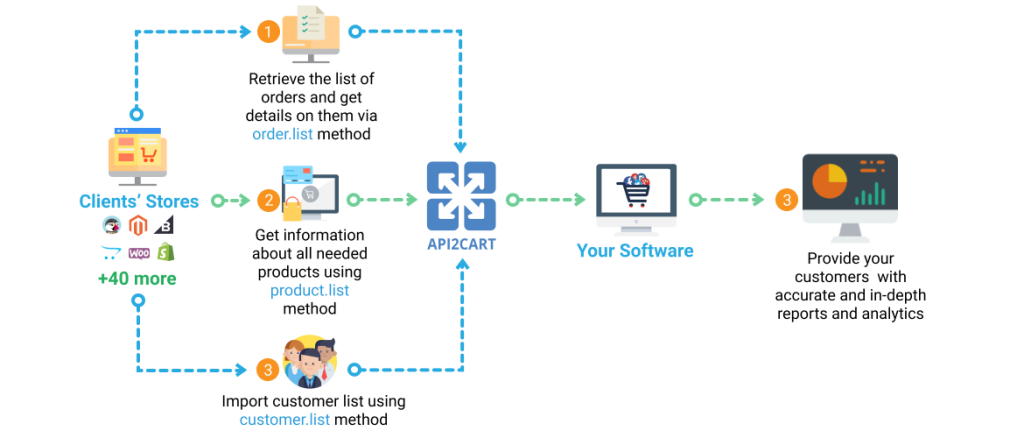In recent years, the hospitality industry has observed a tremendous transition that was mostly driven by the breakthroughs that have occurred in digital marketing. As we move towards the year 2023, the hospitality industry is well positioned for future change, with a primary emphasis on enriching the experiences of guests and generating reservations through creative uses of digital technology. In this article, we’ll take a look at eight developments in digital marketing that are shaping up to be game-changers in the hospitality industry in 2023.
Personalization at Scale
Personalization has evolved into an essential component of effective marketing tactics for the hotel industry. In the year 2023, thanks to the development of sophisticated data analytics and AI-driven algorithms, we are observing a trend toward personalization on a scale that has never been seen before. These days, hotels and resorts are experts in creating highly tailored experiences for their guests. “Personalization is driving customer pleasure and brand loyalty to new heights, whether it be through the customization of email marketing campaigns based on individual preferences or through the provision of customized booking recommendations. For example, when a guest returns to the same hotel, the system can suggest their favorite room type, dining options, and activities, generating an experience that is both seamless and memorable.” – Graham Grieve, Founder of A1 SEO
Video Marketing Domination
The landscape of digital marketing is shifting to accommodate the continued rise of video marketing as a formidable competitor. By the year 2023, the hospitality industry has completely seized the opportunities presented by video content. “Hotels and resorts are making investments in professionally produced videos, showing their properties through virtual tours, providing behind-the-scenes glances, and curating user-generated movies to provide prospective guests with a genuine and immersive preview of what they may expect during their stay. These movies elicit a range of feelings and establish a strong connection with prospective guests, ultimately swaying their choice of whether or not to book a stay at the property.” – Sarah Jeffries, First Aid Training Director at First Aid Course Derby
Voice Search Optimization
In the year 2023, voice search has gone from being a novel concept to an absolute requirement. “Many hotels and resorts are beginning to recognize the significance of voice search optimization as a means of ensuring that they will continue to be discoverable. They are improving their websites and the content on them so that they can effectively answer voice searches. This will ensure that their properties will be prominently highlighted whenever passengers use voice commands to seek recommendations or make reservations. The booking procedure is being simplified as a result of this trend, which also results in an improved user experience and increased accessibility for a larger variety of guests.” – Dean Lee, Head of eCommerce at 88Vape
Sustainable and Responsible Tourism Marketing
Travelers in the present day recognize sustainability not only as a fad but also as an essential asset. “In the year 2023, brands that are associated with hospitality will place a greater emphasis on responsible and sustainable tourism in their digital marketing activities. These firms are interacting with conscious travelers who are increasingly looking for ecologically responsible solutions by presenting eco-friendly practices, highlighting green certifications, and sharing community engagement efforts. For instance, hotels should highlight their efforts to decrease water and energy use, employ materials that are favorable to the environment, and support local conservation projects to appeal to environmentally sensitive visitors.” – Craig Campbell, Owner of HARO Link Building
Augmented and Virtual Reality Experiences
Technologies such as augmented reality (AR) and virtual reality (VR) are revolutionizing how visitors engage with hospitality businesses and enjoy their stays there. In the year 2023, hotels and resorts are actively implementing these technologies to provide guests with experiences that are both interactive and immersive. “Before they arrive, guests have the option of participating in virtual room tours, utilizing augmented reality applications to learn more about the property’s facilities, or even completely submerging themselves in the location by using virtual reality technology. These technologies encourage visitor interaction, create confidence in booking decisions, and pave the way for stays that will be remembered for a lifetime.” – Scott Dodson, Chief Growth Officer, Ling App
Social Commerce Integration
The many social media platforms have developed into effective new distribution channels. “By the year 2023, hospitality brands have fully embraced this trend by incorporating direct integration of social commerce elements into their profiles. Guests may now book rooms, make reservations, and purchase services without leaving their preferred social networking apps at any point during the booking process. This level of convenience makes the booking process easier to understand, lessens the amount of friction that customers face, and improves the overall user experience.” – Matt Magnante, Head of Marketing at FitnessVolt
Influencer Collaborations
The hospitality industry continues to benefit significantly from the application of influencer marketing. To broaden their audience and bolster their credibility in 2023, hotels and resorts are forming strategic alliances with travel influencers and content creators. The genuine recommendations of respected opinion leaders carry a significant amount of weight in the decision-making processes of travelers, which results in an increase in bookings and a heightening of the brand’s recognition.
Data-Driven Insights for Hyper-Personalization
In the hospitality industry, the use of cutting-edge data analytics techniques is opening the door to the possibility of hyper-personalization. Hotels and resorts can give services and experiences that are personalized to individual interests because the establishments collect data from guests and carefully analyze that data. This level of customization makes for unforgettable experiences for guests and helps build strong brand loyalty. It doesn’t matter whether it’s catering to unique accommodation preferences, proposing dining choices, or offering leisure activities; all of these things fall under the category of personalization. For example, a hotel can offer a tailored schedule to a guest by analyzing the guest’s previous stays and preferences. This itinerary can include spa treatments, dining reservations, and local excursions, making the guest’s stay one of a kind and unforgettable.
AI-Powered Chatbots for Enhanced Guest Support
The implementation of AI-powered chatbots for the purpose of providing service to customers will be yet another key trend in the hotel business in 2023. Chatbots are currently being used in hotels and resorts as a result of advances in artificial intelligence technology. These chatbots are able to deliver quick responses to guest inquiries, make suggestions for nearby activities, and even handle booking and reservation processes in a smooth manner. These chatbots not only improve the experience of guests by giving assistance in a quick and effective manner, but they also free up human employees to concentrate on more difficult jobs, which eventually leads to an increase in operational efficiency. In addition, as chatbots collect data on the preferences and interactions of guests, hotels may use this important information to further expand their hyper-personalization efforts, making certain that the stay of each guest is customized to meet their particular requirements and interests.
Conclusion
In the year 2023, the hospitality industry is on the cusp of a revolutionary change in terms of how digital marketing is practiced. The future of hospitality marketing is being shaped by several trends, including hyper-personalization driven by data, personalization at scale, the dominance of video marketing, voice search optimization, sustainability efforts, social commerce integration, augmented reality and virtual reality experiences, influencer collaborations, and more. For hotels and resorts that want to succeed in the ever-changing world of hospitality, staying one step ahead of these trends and altering their marketing strategy accordingly will be essential. The hospitality sector is not only adapting to the shifting requirements of customers by embracing these trends, but it is also producing amazing and life-changing experiences for its guests.



